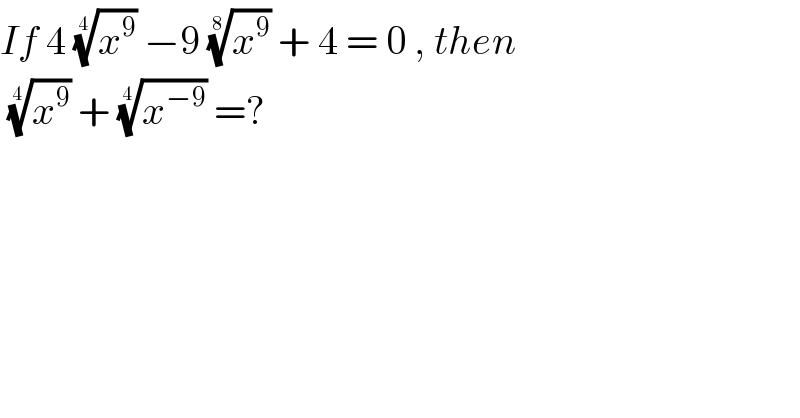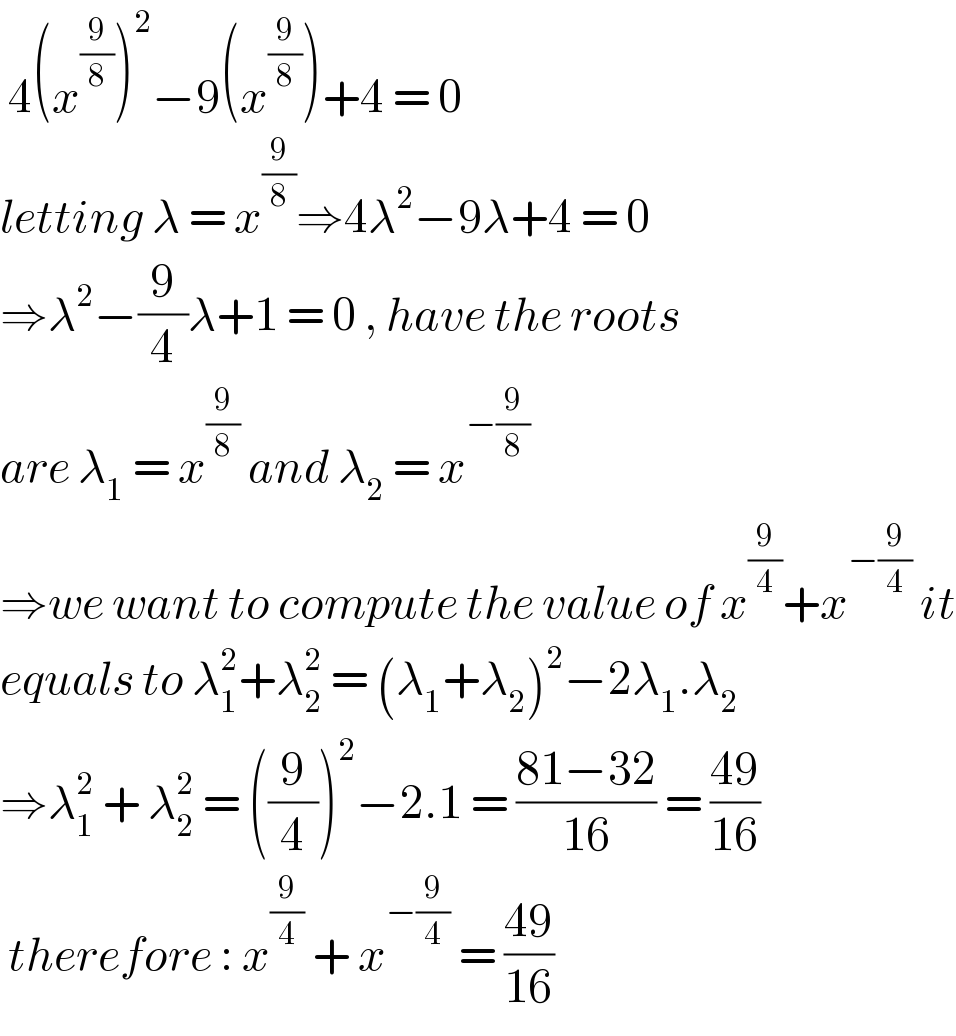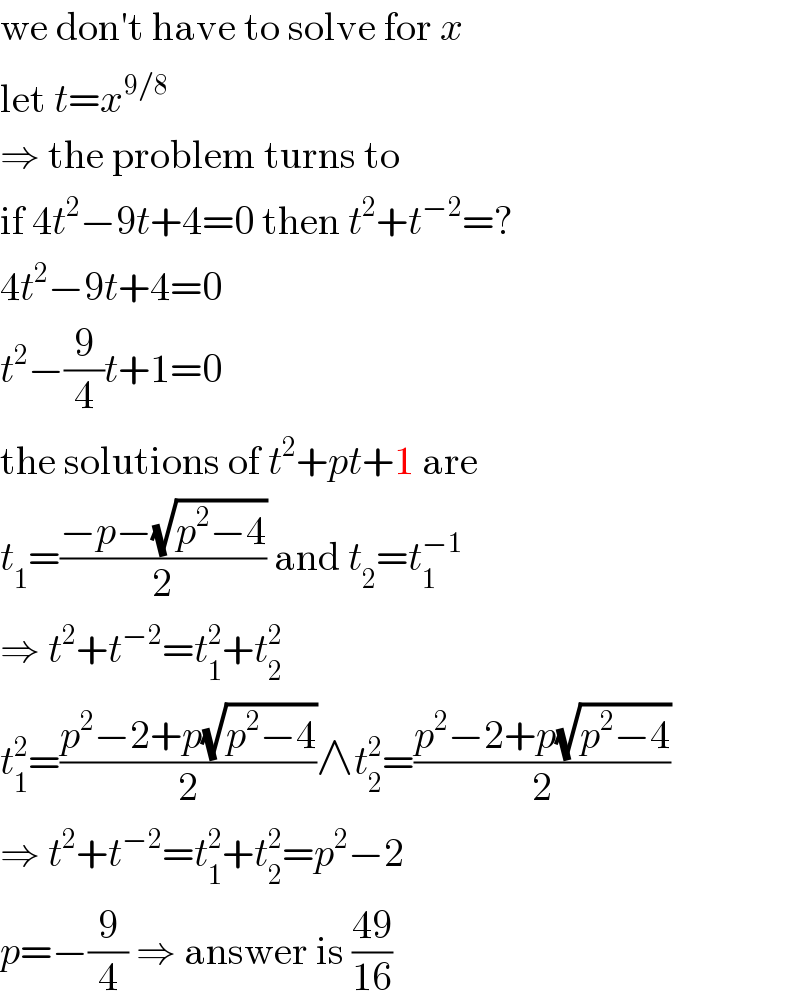Question Number 118435 by bramlexs22 last updated on 17/Oct/20

Answered by benjo_mathlover last updated on 18/Oct/20

Commented by MJS_new last updated on 17/Oct/20

Commented by bramlexs22 last updated on 17/Oct/20

Commented by MJS_new last updated on 17/Oct/20

Answered by MJS_new last updated on 17/Oct/20

